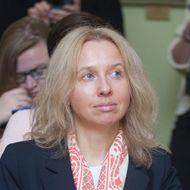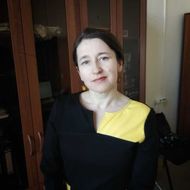- A
- A
- A
- ABC
- ABC
- ABC
- А
- А
- А
- А
- А
- HSE University
- Faculties
- Faculty of Humanities
- School of History
- Events
- “A Bilateral Affair: The Soviet Union, Turkey, and International Relations in the Interwar Period.”: A Talk by Samuel Hirst
105066 Moscow, Staraya Basmannaya 21/4, building 3
Phone: +7 (495) 772 95 90 *22858
The HSE School of History was established in 2015 on the basis of the HSE faculty of history. The School's staff brings together leading scientists in various fields of historical knowledge who are widely known and respected in Russia and the international academic community. The School’s instructors are leading historians are authors of numerous books and articles, regular participants in major international scientific forums and research projects, and are also known as popularizers of historical knowledge. The HSE School of History actively cooperates with leading foreign universities and research centers, and organizes international scientific conferences, symposia, and colloquiums.
Strasbourg: Presses universitaires de Strasbourg, 2023.
Misiak M., Butovskaya M., Sorokowski P.
Food Quality and Preference. 2024. Vol. 114.
In bk.: Picturing Russian Empire. Oxford: Oxford University Press, 2024. Ch. 6. P. 66-73.
Kolesnik A., Rusanov A.
Working Papers of Humanities. WP. Издательский дом НИУ ВШЭ, 2021. No. 205.

“A Bilateral Affair: The Soviet Union, Turkey, and International Relations in the Interwar Period.”: A Talk by Samuel Hirst
Abstract. The general trend of international relations in the interwar period was from the quest for collective security in the 1920s to two-party agreements in the 1930s. Yet Mosow and Ankara signed a demonstrative bilateral treaty in response to Locarno in 1925, and, in 1932 and 1934 respectively, Turkey and the Soviet Union joined the League of Nations as other states were exiting. These two countries’ interactions thus defied broader patterns and point to the limits of the order that emerged from Paris in 1919. More broadly, the story of post-World War I Soviet-Turkish convergence allows us to examine the development of a way of thinking about international relations in bilateral terms that became ubiquitous in the 20th century.
The talk will be given in English.
Non-HSE staff who would like to attend the talk can order a pass from Nadezhda Nekrasova (nvnekrasova@hse.ru).
- About
- About
- Key Figures & Facts
- Faculties & Departments
- International Partnerships
- Faculty & Staff
- HSE Buildings
- Public Enquiries
- Studies
- Admissions
- Programme Catalogue
- Undergraduate
- Graduate
- Exchange Programmes
- Summer University
- Summer Schools
- Semester in Moscow
- Business Internship
-
https://elearning.hse.ru/en/mooc/
Massive Open Online Courses
-
https://www.hse.ru/en/visual/
HSE Site for the Visually Impaired
-
http://5top100.com/
Russian Academic Excellence Project 5-100
- © HSE University 1993–2024 Contacts Copyright Privacy Policy Site Map
- Edit



